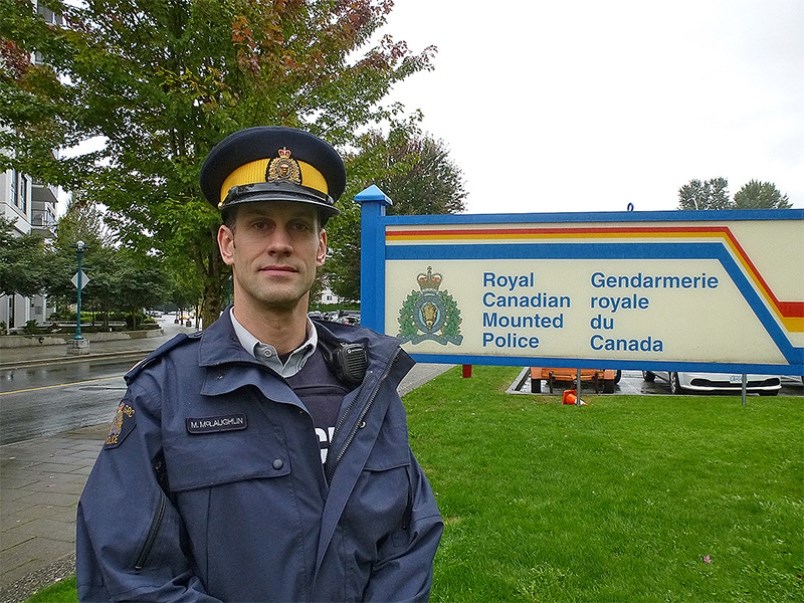Coquitlam Mounties are trying to tamp down on a scam targeting new Canadians that has become more prevalent in the last few months.
According to investigators, fraudsters posing as representatives of either the Canada Revenue Agency or the Immigration and Refugee Board are threatening legal consequences if the victims do not hand over Bitcoins, the virtual currency.
Cpl. Michael McLaughlin told The Tri-City News this week that at least four incidents have been reported in Coquitlam and Port Coquitlam involving a "significant amount of money."
"We see this as an increasing trend," he said. "It has been picking up lately."
He added the fact the fraud is happening with Bitcoin makes it even more difficult to track down the funds, which are not traceable.
In some cases, the victims were not aware they were transferring the money using the crypto-currency. They were simply directed to what they thought was a bank machine but was actually a Bitcoin machine and told to make the payment from there.
Catching the perpetrators is difficult for investigators, he said, because the scams are often conducted from overseas.
McLaughlin said people who are new to Canada are particularly susceptible to these kinds of scams because there is often a lack of understanding of how the justice and immigration systems function.
"These criminals are going after vulnerable people," he said. "They are going after the elderly and they are going after new Canadians that are just trying to do what they think is the right thing."
The Better Business Bureau said they have also noticed an uptick in the number of scams taking place using Bitcoin.
In a press release, BBB said that while in the past, crooks would use pre-paid credit cards or wire transfers to steal money, the use of crypto-currencies are becoming increasingly common.
"When you have an unregulated currency like this, it can certainly become attractive to the criminal element," said Evan Kelly, the senior communications advisor with the bureau. "The number one thing to remember is government organizations don't operate this way and they don't take payment in Bitcoin."
PROTECT YOURSELF
• The government does not send text messages to people who owe money
• The government will not pressure you to pay a fine within minutes or hours.
• The government does not accept payment in Bitcoin, gift cards or prepaid cards.
• Government agencies do not demand you keep a conversation secret from your spouse, family or police.
• Do not trust a number on your call display as they can be made to look like the calls are coming form other areas.
• Do not share personal information, including banking information, over the phone with anyone.
– source: Coquitlam RCMP



